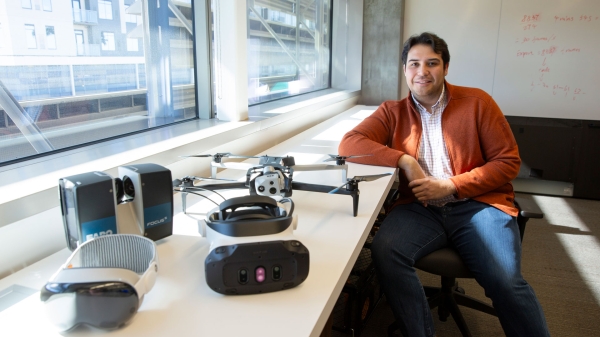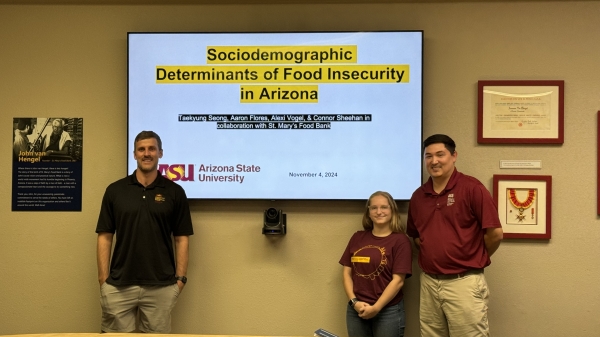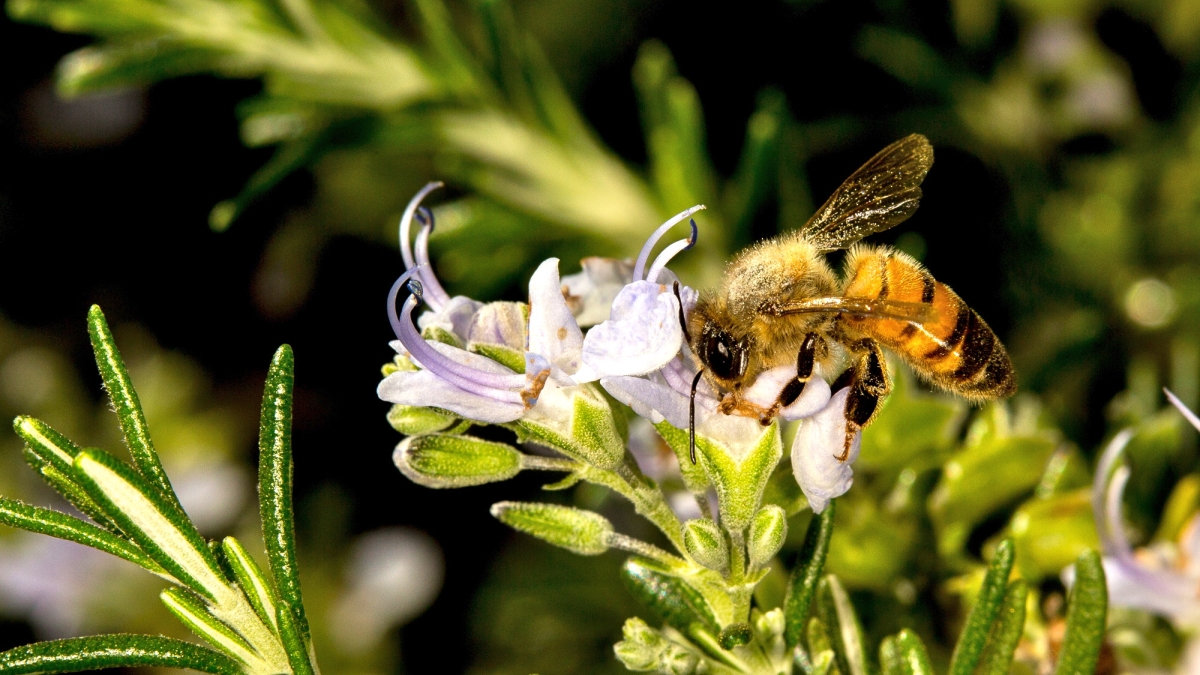Keeping honeybees healthy is critical to the world’s food supply.
A lack of adequate nutrition for bees is blamed as one of many possible causes for colony collapse disorder — a mysterious syndrome that causes a honeybee colony to die. Parasites, pesticides, pathogens and environmental changes are also stressors believed responsible for the decline of honeybees.
Learning how bees cope with these stressors is critical to understanding honeybee health and performance.
In two new studies, researchers from Arizona State University’s School of Life Sciences have discovered that the stress of short-term nutritional deprivation as larvae (baby bees) actually makes honeybees more resilient to starvation as adults.
“Surprisingly, we found that short-term starvation in the larval stage makes adult honeybees more adaptive to adult starvation. This suggests that they have an anticipatory mechanism like solitary organisms do,” said Ying Wang, assistant research professor with the school and lead author of the two investigations. Wang said they found evidence of this mechanism in several areas such as behavior, endocrine physiology, metabolism and gene regulation.
The anticipatory mechanism, also called “predictive adaptive response,” explains a possible correlation between prenatal nutritional stress and adult metabolic disorders such as obesity and diabetes in humans. Yet, these findings show for the first time that social organisms can have this mechanism.
Since most research on bee nutrition has focused on using adult honeybees, rather than their young, this new information changes the current understanding of colony collapse disorder and provides new avenues to study.
The findings are published in two papers appearing today in “The Journal of Experimental Biology” (study 1, study 2).
Interestingly, Wang and her colleagues also found that when bees experienced starvation as larvae, they could reduce their metabolic rate, maintain their blood-sugar levels, and use other fuels faster than the control bees during starvation. This increased the probability of their survival under a starvation situation.
“These studies show how the fundamental physiology of animals separated by hundreds of millions of years of evolution maintain central, common features that allow us to learn more about ourselves from studying them and about them by looking to ourselves,” said Rob Page, University Provost Emeritus and co-author of the paper. “They reveal key features of honeybee physiology that may help us find solutions to the serious problems of bee health worldwide.”
Managed honeybee colonies have declined worldwide, down to 2.5 million today from 5 million in the 1940s. This comes at a time when the global demand for food is rising to meet the nutrition needs of 7.4 billion people. Since multiple stressors are negatively impacting bee health, Wang’s new findings may provide a different strategy to help solve the problem of colony collapse disorder.
“Manipulations during development may be able to increase the bees’ resistance to different stressors, much like how an immunization works,” Wang added. “However, we are at a starting point with this new discovery and we will have many questions to be answered.”
Researchers from Arizona State University; the U.S. Department of Agriculture; Arid-Land Research Center; and the University of Life Sciences, Aas, Norway, participated in the studies.
The two studies were funded by: Research Council of Norway (180504, 185306); PEW Charitable Trust (to G.V.A.);and NSF IOS (1122157) to J.F.H.
Top photo: ASU researchers have discovered that short-term starvation as larvae (baby bees) actually makes honeybees more resilient to nutritional deprivation as adults. This is the first time that an anticipatory mechanism, called "predictive adaptive response," has been found in social organisms. Photo by Christofer Bang
More Science and technology

Teaching construction realities with virtual environments
Visiting a construction site is a valuable learning opportunity for students who want to one day work in the industry. Experiencing the sights, sounds and other sensory elements of an active…
ASU, Mexico partner to build next generation of chipmakers, drive semiconductor innovation
Thousands of college students in Mexico will soon have the opportunity to enroll in Arizona State University’s new, free online course to learn the fundamentals of microelectronics and…

ASU, St. Mary’s Food Bank partner to tackle food insecurity in Arizona
Arizona State University and St. Mary’s Food Bank (SMFB) have joined forces to create an interactive data dashboard that tracks and maps food insecurity rates across Arizona. This innovative tool…
